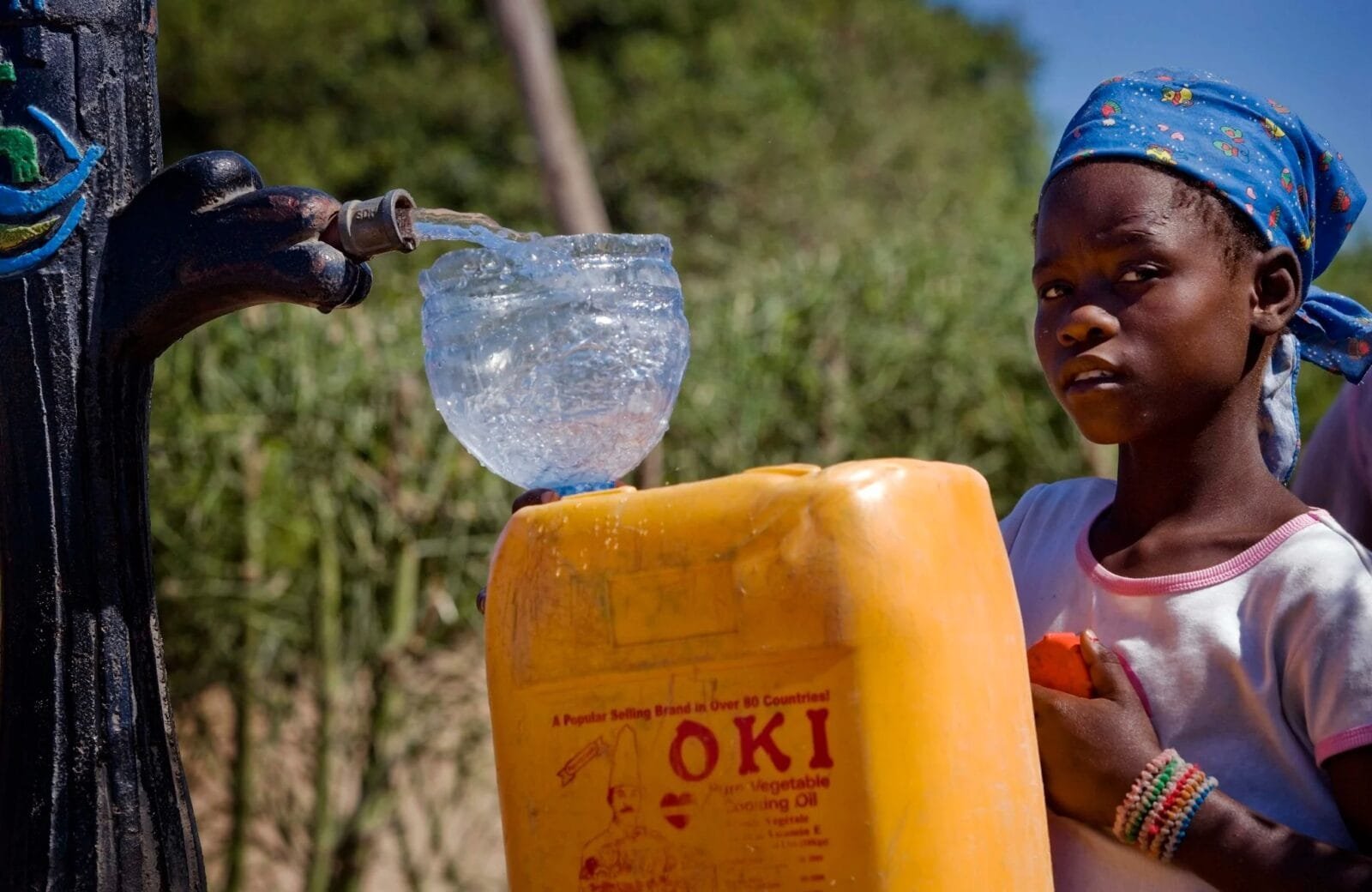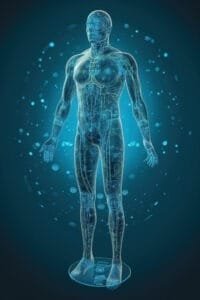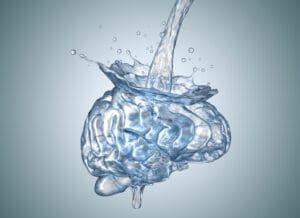
It is interesting how we casually esteem and most often pay little attention to the importance of water in our lives. Granted, we know it is vital, but to what extent do we engage its properties and relevance to benefit our lives.
The phrase ‘water is life’ has been overused to the point of exhaustion and various researches churned out to salvage its original state has further deepened the resolve by some industry players to merely glamorize its competencies instead of engaging the public to true repentance.
From quenching our thirst to fueling human’s cognitive abilities, water harbors other salient attributes such as nurturing radiant skin to fortifying the immune defenses, entrenching more so the power of hydration in one’s overall health and wellness.
Water, The Building Blocks Of The Human Body
Water is found everywhere from the glaciers to the waterfalls and estimated to cover around 70% of the earth’s surface. Scientifically, the human body is averagely made up of 60% water, emphasizing the need for a replete amount in the life of all who desire to see a certain quality of life and wellness. Nonetheless, the amount of water in the body can change slightly with age, sex and hydration levels.
Water, an essential nutrient, is fundamental for life and plays a vital role in regulating several physiological functions in the human body. It is clear, water is key to the function of the human body as it acts as nutrients for body cells, a carrier for these nutrients and assists in cellular metabolism. Not only do humans need it, plants, animals and every other living organism thrives on its very presence.
Power of Hydration
Having an understanding of how powerful water can be to us, it makes the process of hydrating extra meaningful. This is because it influences every facet of one’s well-being from its impact on digestion, temperature regulation, mental clarity, to shaping our ability to perform at our best, both physically and mentally, and it ensures that our bodies’ defense mechanisms remain steadfast in the face of challenges.
Primarily, healthy people who maintain their water balance are in a normal hydration state, and being able to determine the level of hydration in people who are exposed to environmental factors that can cause dehydration is practically crucial.
Furthermore, having enough fluids in your system play other equally important role, particularly for neurological function (such as mood and cognitive function), gastrointestinal and renal function, body weight and composition, and skin health.
An increasing amount of research is showing how crucial staying well hydrated is to preserving good health, particularly in terms of weight control, kidney stone risk, and cognitive function.
Requirement in Water Intake Challenged
Comparatively in adults, water makes up a larger portion of the body weight in newborns and children. In light of this, the amount of water required is defined by derived intake levels that are predicted to meet the nutritional demands of a healthy population. This is the amount of water that is considered adequate for newborns, adolescents, adults, and older people.
According to the Food and Nutrition Board of 2004, it established the values for a sufficient intake of water from liquids. 0.7 liters per day for babies ages 0–6 months; 0.6 liters per day for babies ages 7–12 months; 0.9 liters per day for kids ages 1-3; and 1.2 liters per day for kids ages 4–8. For male teenagers ages 9 to 13, 14 to 18, and adult males, the requirement of water is 1.8, 2.6, and 3.0 liters of water per day. Female teenagers between the ages of 9 and 13 require 1.6 liters per day, 14 to 18 require 1.8 liters per day, and adult females require 2.2 liters per day.
The amount of water needed each day varies from person to person, depending on how active they are, how much they sweat, and so on.
Against the postulated drive of drinking at least eight glasses of water a day, there truly is no fixed amount of water that must be consumed daily, but there is general agreement on what a healthy fluid intake is.
According to the U.S. National Academies of Sciences, Engineering, and Medicine, the average recommended daily intake of water from both food and drink for men is around 3.7 liters or 125 ounces, and for women, it hovers around 2.7 liters or 91 ounces.
This would be around 15.5 cups for men and just over 11 cups for women. However, around 80 percent of this should come from drinks, including water, and the rest will be from food.
Fresh fruits and vegetables and all non-alcoholic fluids count towards this recommendation.

Dehydrate At Your Own Risk!
Dehydration can lead to acute disorders like heatstroke, but it can also raise the risk of chronic kidney disease, kidney stones, urinary tract infections, metabolic diseases, and cardiovascular diseases. Dehydration-related body mass losses of more than 2% are often linked to increased tiredness and decreased attention.
Healthy humans precisely control their daily water balance despite having different water needs. On the other hand, dehydration poses a bigger risk to older individuals and newborns than to Yong adults. In addition to encouraging those who are at risk of dehydration to drink more water, parents and other caregivers should be aware of the symptoms of dehydration in young children and older adults.
According to the National Council of Aging, some common myths related to water consumption are that drinking liquids is the only way to stay hydrated, everyone should drink eight glasses of water per day, one cannot drink too much water, and if a person is not thirsty, then they are not dehydrated. These are common misconceptions because it is possible to overindulge in water and consume more than your body can process, which can result in a condition known as hyponatremia or water poisoning.
Meanwhile, lubrication of joints which is paramount for most activities grinds to a halt during moments of dehydration. Cartilage, found in joints and the disks of the spine, contains around 80 percent water. As such, long-term dehydration can reduce the joints’ shock-absorbing ability, leading to joint pain.
Sources of Water
Apart from the traditional way of consuming water in its natural state, it can be equally consumed and obtained by the body through foods with a high-water content, such as soups, tomatoes, oranges, but most come through drinking water and other beverages.
According to MedicineNews, during every day functioning, water is lost by the body, and this needs to be replaced. It is noticed that water is lost through activities such as sweating and urination, and water is lost even when breathing.
As a result, drinking water, whether from the tap or a bottle, is the best source of fluid for the body, although milk and juices are also good sources of fluid. However, beverages containing alcohol and caffeine, such as soft drinks, coffee, and beer, are not ideal because they often contain empty calories. Drinking water instead of soda can help with weight loss.
Impact of Water In Disease Prevention And Management
Medicines aren’t the only cure to ailments and diseases and that is why we must bank our health on water. Among other things, being hydrated forms saliva and mucus, which helps us digest food and keeps the mouth, nose, and eyes moist. This prevents friction and damage. Drinking water also keeps the mouth clean, and when ingested instead of sweetened beverages, it can also reduce tooth decay.
Similarly, it deploys oxygen throughout the body, because blood is more than 90 percent water, and blood carries oxygen to different parts of the body. For those totally obsessed with their skin health, water is definitely your go-to. With dehydration, the skin can become more vulnerable to skin disorders and premature wrinkling.
Dehydrating can affect brain structure and function, as it is also involved in the production of hormones and neurotransmitters. Prolonged dehydration can lead to problems with thinking and reasoning. Hence, drinking lots of water means steering clear of these illnesses.

The digestive system depends on water. The bowel needs water to work properly. Dehydration can lead to digestive problems, constipation, and an overly acidic stomach. This increases the risk of heartburn and stomach ulcers.
The leading cause of kidney stones is a lack of water. People who report them often do not drink the recommended daily amount of water. Kidney stones may also increase the risk of chronic kidney disease. Therefore, in preventing issues such as kidney damage, water helps dissolve minerals and nutrients, making them more accessible to the body and helps remove waste products.
Drinking plenty of water is another simple way to reduce the risk of developing a UTI and to help treat an existing UTI. Kidney stones interfere with how the kidneys work. When present, can complicate UTIs. These complicated UTIs tend to require longer periods of antibiotics to treat them, typically lasting 7 to 14 days.
In November 2014, the American College of Physicians issued new rules for people who have previously developed kidney stones. The guidelines state that increasing fluid intake to enable 2 liters of urination a day could decrease the risk of stone recurrence by at least half with no side effects.
Possessing the unique set of knowledge on the significance of water, it is important to deliberately incorporate it in your daily routine and set reminders if need be. When mastered, visiting the doctor for issues such as common cold and fatigue will be a thing of the past!



